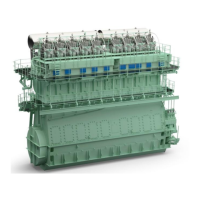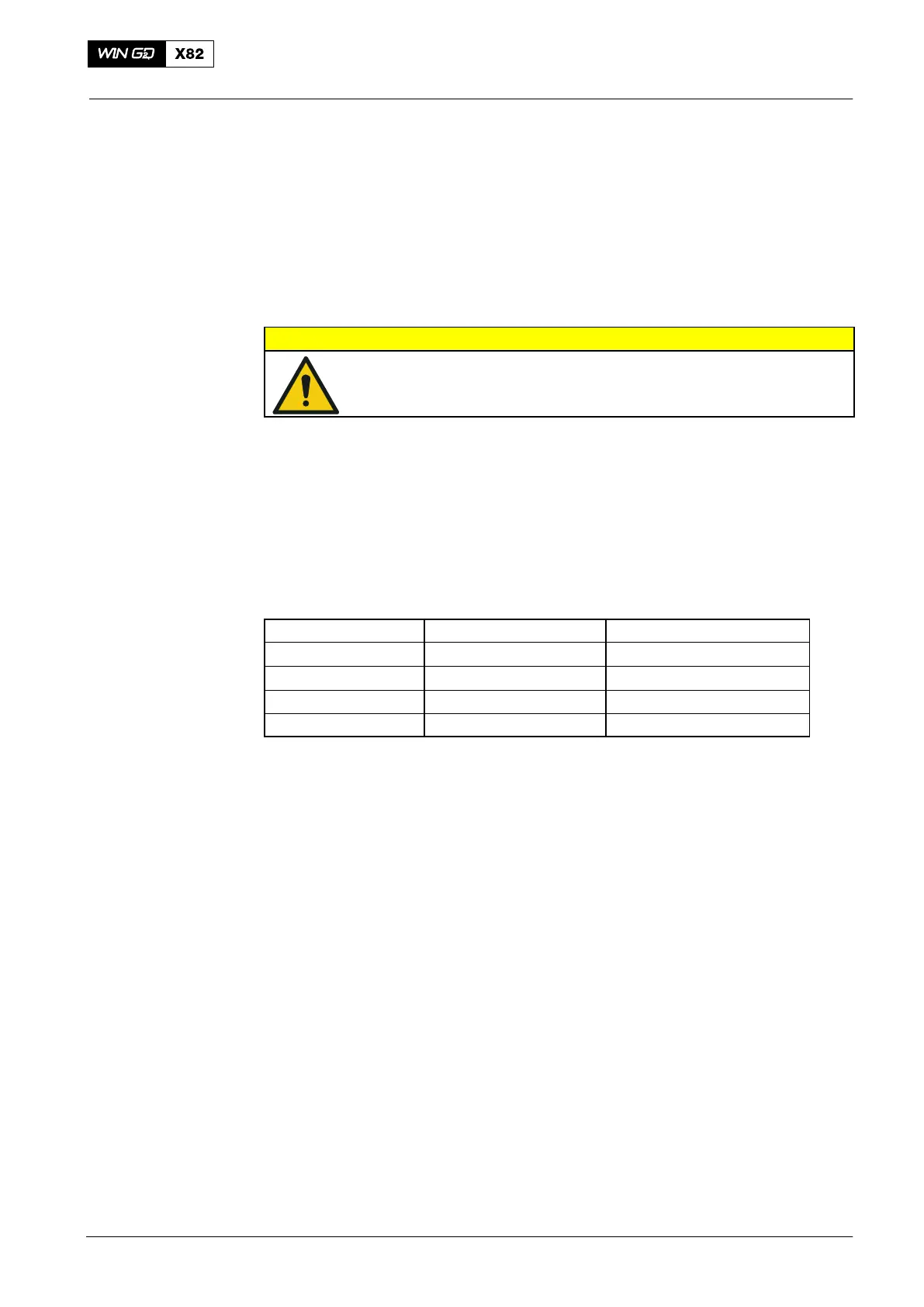Operation
0760−1/A1
Winterthur Gas & Diesel Ltd.
1/ 2
Cooling Water / Cooling Water Treatment
1. General
An applicable treatment is used to give the cooling water the correct properties, which
will prevent service problems. Cooling water that has not had treatment can soon
cause problems in the cooling system from corrosion, sediment and hard
particles (crust).
2. Raw Water − Closed Cooling Water Circuits
CAUTION
Damage Hazard: Do not use seawater as raw water. Sea water has
a high salt content and causes damage to the cooling water
system.
Before you fill the system, the raw water must be fully desalinated. Condensate water
from e.g. the fresh water generators or from auxiliary steam systems can be used, but
must have additives. Condensate water is highly corrosive and must have corrosion
inhibitors to prevent problems.
Use potable water or process water from the local mains only as a last option. The
hardness of this water must not be more than 10_dH (German hardness degrees). If
the hardness is more than this limit, desalinate the water to the values given in the
Table 1.
Table 1: Water Data
Parameter Value Test Method
pH, (see Note) 6.5 to 8.5 ASTM D 1287 or D 1293
Hardness
Maximum 10_dH
ASTM D 1126
Chlorides (Cl
−
) Maximum 80 mg/l ASTM D 512 or D 4327
Sulphates (SO
4
2−
) Maximum 150 mg/l ASTM D 516 or D 4327
Note: For reverse osmosis technologies, the minimum pH value is 6.0.
If you think there is a problem, do an analysis of the water. Send the results of the
analysis to Winterthur Gas & Diesel Ltd. to get advice.
Corrosion protection oils (emulsion oils) are not recommended for the treatment of the
cooling water. If instructions about the use of corrosion protection oils are not obeyed
and coolant checks are not sufficient, then water / oil emulsion can occur. This can
cause the cooling system to become clogged.
3. Cooling Water during Operation
The cooling water must have the correct corrosion inhibitor. Inhibitors that contain the
agents Nitrite and Borate, and are related to the Organic Acid Technology (OAT) are
known to be satisfactory. You can get a list of recommended products from Winterthur
Gas & Diesel Ltd.
The instructions of the manufacturer must be obeyed for the correct quantity of the
corrosion inhibitor. You must do regular checks during operation to keep the correct
concentration.
It is recommended that you choose such suppliers of inhibitors who can also give
specified advice for the new cooling water and for during operation.
If there are leaks, you must add the correct quantity of water with the correct
concentration of inhibitor. If evaporation causes a decrease of the coolant, add the
applicable quantity of raw water (see paragraph 2 above). This will make sure that the
concentration of inhibitors is not too much.
The water in the cooling system must have a pH value of 8 to a maximum of 10.
2014
Operating Media

